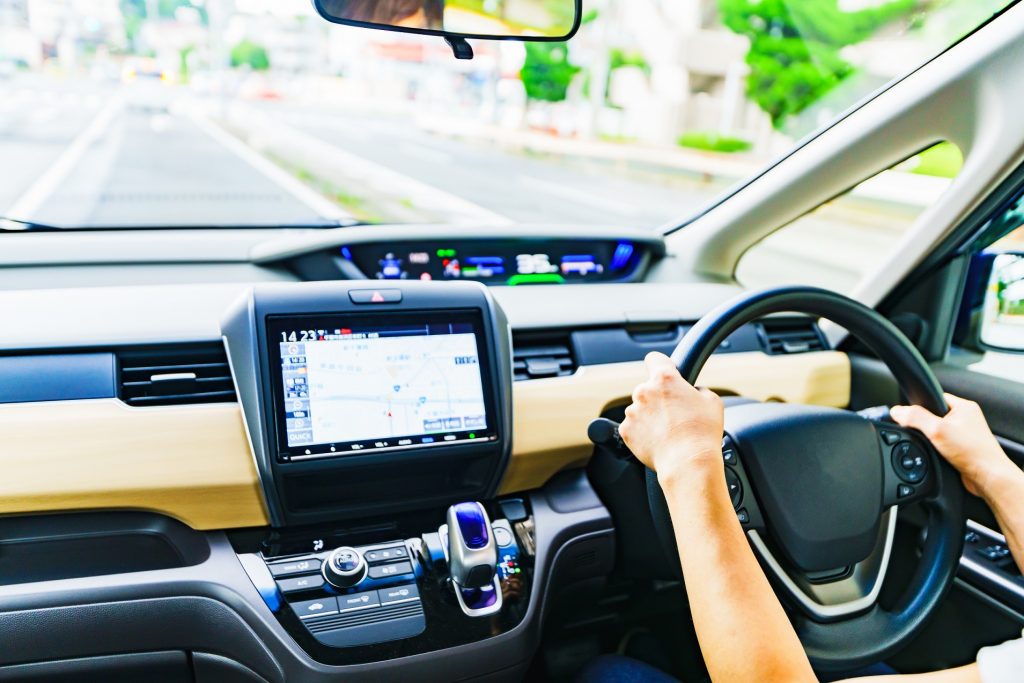Driving in Japan is quite safe and easy. The Japanese are polite drivers, the roads are well maintained and most of the traffic rules in Japan are probably like the traffic rules in your country: you are obligated to wear a seatbelt, always carry your (international) driver’s license and stick to the speed limit. In addition, there is a zero-tolerance policy towards drinking and driving, the police are very strict about this. Besides a massive fine you can be sent for up to five years. Some other quick facts:
・The legal driving age in Japan is 18.
・In Japan traffic lights are often green for both cars and pedestrians.
・Pedestrians always have right of way.
・When you get into an accident with a cyclist, you are always to blame.
・Parking in the cities can be difficult due to limited parking spaces.
・Parking is often free of charge at supermarkets and konbini;
・For medical assistance, dial 119; for police, dial 110.

Drive on the left side of the road
Depending on where you live, this is one of the biggest challenges and differences compared to driving back home. In any case, keep to the left and overtake on the right is one of the most important traffic rules to remember. In Japan, drivers are allowed to drive only on the left side of the road just like Great Britain, Australia, and India. It can get a little confusing especially if you are from the United States or any other countries where cars drive on the right side of the road. Just remember: the driver is on the same side as the line dividing road lanes! In addition, all rental cars in Japan are right-hand drive, and it might take you a while to get used to it.
Speed limits in Japan
The speed limit in urban areas is 30-50 km/h, the actual limit depends on the roads but will be clearly marked. In the more rural areas, the speed limit is often 80 km/h and on the highway (expressways) the speed limit is 100 km/h. The Japanese stick to their speed limits religiously! In addition to the speed limit, there is also a speed minimum on the highways, you can recognise this by the underlined number.
Stop at the railroad crossing
In Japan, you are required by law to always stop at the railroad crossing. It is for safety reasons, and you are supposed to check both ways to make sure no trains are coming. The police sometimes watch the cars passing through the railroad crossings, and fines might be imposed if you fail to follow these rules.
Toll roads
Many of the expressways in Japan are toll roads and upon exiting the toll road you are required to pay the toll. On most toll roads there are two ways of doing so: by ETC card or manually. The purple drive through will be marked ‘ETC’ and can only be used if you have an electronic card in your car. Many rental cars will have an ETC card included, just ask for it when you pick up the car at the car rental. Another booth will be for people paying cash, this drive through is marked green. Make sure you always carry some cash with you as often you cannot pay by card!
Learn road signs used only in Japan
Road signs help us be aware of possible dangers and drive safely. There are several road signs only used in Japan, some of them have unique pictures on them or are only written in Japanese. Learning about them in advance enables you to get ready for a driving experience in Japan with confidence.
International Driver’s License
You need a valid driver’s license to rent and drive a car in Japan. Tourists from designated countries are allowed to drive a car with a driver’s license that was issued in their own country. If your license was issued by a country affiliated with the 1949 Geneva Convention, you will need an international driver’s license, also called IDP (International Driving Permit), too. You can get these easily and cheaply in your country and they are often valid for one year. Remember to bring your ‘normal’ drivers’ license and passport too.
The international permits look very similar, but keep in mind that Japan is extremely strict when it comes to international regulations. Always make sure you bring your passport, driver’s license, and other documents, without those you will not be able to rent a car. If you are not sure whether you’ll need an international driver’s license, contact your embassy, or visit the website of the Tokyo Metropolitan Police Department.










